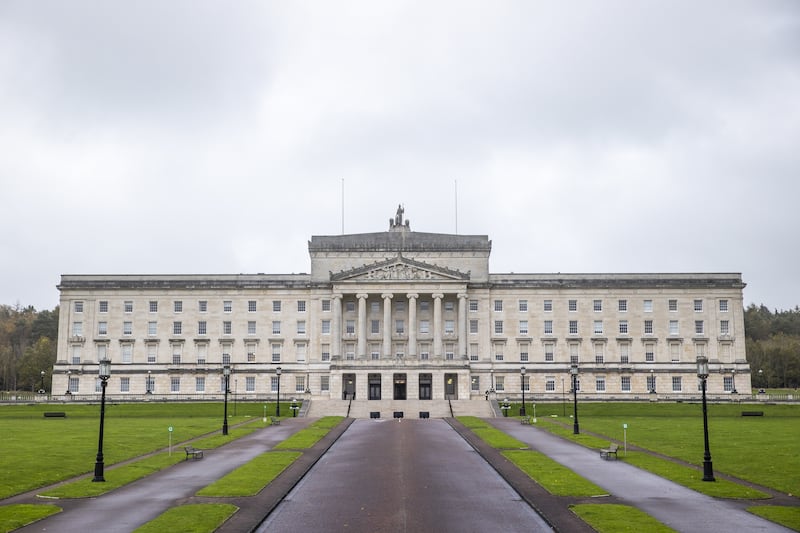STORMONT'S two largest ruling parties have defended their record in government despite the assembly producing an average of just over a dozen items of legislation each year.
The DUP said legislation should not be the only measure of success for the assembly, while Sinn Fein said its executive ministers had continued to deliver "positive change to communities".
But the smaller parties have criticised the executive's record, with Ulster Unionist leader Mike Nesbitt accusing the executive's two biggest parties of "massive failures" and his Alliance counterpart David Ford saying Stormont needed to "move away from the concept of the institutions just surviving".
Since the election nearly five years ago a total of 67 pieces of legislation have been passed by the assembly, including five private members bills brought by individual MLAs. In the last 12 months of the mandate, more legislation was passed than in the previous four years combined. During the same period, the Scottish parliament passed 75 items of legislation.
Bills of note include those relating to Welfare Reform, the plastic bag tax and legislation to reduce the number of Stormont departments. However, much of what the assembly has passed can be deemed ‘housekeeping’, as it relates to the regional finances or tweaks of existing legislation.
Notably, there is no legislation for dealing with the past or addressing the contentious issue over flag-flying.
But according to the DUP there has been "progress made in key areas". East Antrim MLA Gordon Lyons said despite predictions that the institutions would collapse they had survived to the end of the mandate.
"The Fresh Start agreement not only ensured the implementation of welfare reform, but secured the devolution of corporation tax and placed devolution back on a stable financial footing," he said.
"Legislation should not be the only measure of success for the assembly, but a number of notable bills have passed."
The DUP MLA pointed to Lord Morrow’s Human Trafficking and Exploitation Bill, describing it as the "most significant piece of private member’s legislation ever passed by the assembly".
A Sinn Féin spokesman highlighted the distribution of EU subsidies to farmers by Agriculture Minister Michelle O'Neill's department. He also noted how more £0.5bn had been spent by Education Minister John O'Dowd on improving school buildings.
"The executive has also supported those most in need from the worst effects of Tory cuts by preventing unmitigated welfare cuts with a package of funding worth more than £500," the spokseman said. However, he noted that "more needs to be done on gender equality and in eradicating sectarianism, homophobia, racism and bigotry in all its forms".
Both the largest parties highlighted the executive's record in creating employment, pointing to more than 40,000 jobs that had been promoted, far in excess of the 25,000 target in the Programme for Government.
However, the assessment of the mandate from Stormont's smaller stories was less glowing.
The SDLP's Fearghal McKinney said the "ambition of the executive has been a let down".
"We may have had nine years of unbroken devolution in the north for the first time but it’s time we stopped congratulating ourselves for simply getting by – especially when so many of the people we represent are struggling to get by because the executive is not delivering," he said.
UUP leader Mike Nesbitt said: "Their record over nine years and two full mandates would not be tolerated by the voters of England, Scotland, Wales or the Republic of Ireland."
Alliance leader David Ford said there had been some achievements during the mandate "but it would be wrong to greet the entire time with congratulations".
"While modest improvements have been made on things like the removal of interface structures, there is still lot more to be done, requiring greater work between several of the departments than we have yet seen," he said.
TUV leader Jim Allister said: "It was also a term which was characterised by scandal which caused the reputation of the devolved institutions to fall even further in the public estimation."







